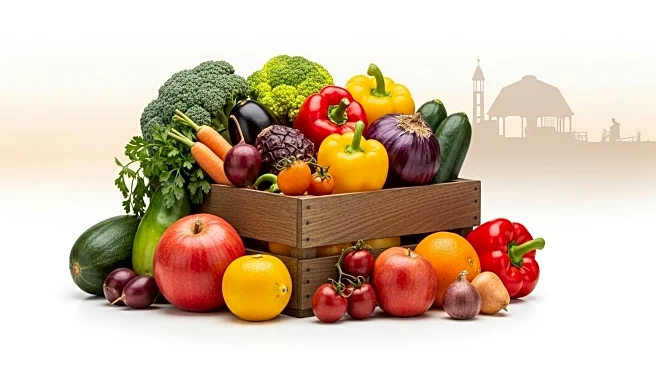What is the story about?
What's Happening?
Farmers and economists gathered at the Chicago Federal Reserve conference to discuss the impact of tariffs on agriculture. Tariffs on China, Canada, and Mexico have increased costs for agricultural products like fertilizer, while retaliatory tariffs have hurt exports. Farmers expressed concerns over rising input costs and the lack of relief from recent interest rate reductions. The conference highlighted the challenges faced by Midwest farmers due to changing trade policies and economic factors like inflation.
Why It's Important?
Tariffs have significant implications for the agricultural sector, affecting production costs and export opportunities. The Midwest, a major agricultural region, is particularly vulnerable to these changes. The conference underscores the need for policy adjustments to support farmers and mitigate the adverse effects of tariffs. Addressing these challenges is crucial for maintaining the competitiveness of U.S. agriculture and ensuring the economic stability of rural communities.
Beyond the Headlines
The ongoing trade tensions and tariff impacts may lead to long-term shifts in agricultural practices and trade relationships. Farmers may need to explore alternative markets and strategies to adapt to the changing landscape. The conference discussions could influence future policy decisions aimed at supporting the agricultural sector and enhancing trade relations.
















